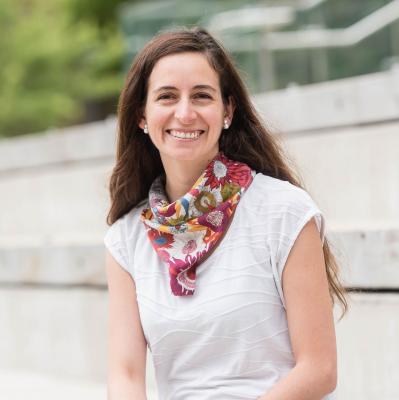
Research topic
Research Description
Most of us live in cities, which are increasingly vulnerable to climate-related extreme events, such as heat waves, wildfires, and floods. With accelerating urbanization, the state of ecosystems and the well-being of 70% of the global human population living in cities by 2050 will greatly depend on the way cities anticipate and prepare for rapid change in the next 5-10 years. My research focuses on urban forestry to help cities face these challenges. How can urban forests play a significant role in fostering resilience? Urban forests have the potential to improve urban quality of life, and reduce vulnerability to multiple climate risks, yet very little is known about the actual city-level impact of this potential, and even less so how to enhance it. The Banting Postdoctoral Fellowship helps me address this important gap by studying the role of urban forests to increase urban resilience as a nature-based solution to climate change, considering: (1) the way in which urban forests and the services they provide are affected by different landscape configurations and climate risks, (2) the way in which citizens perceive, value and interact with different urban forests within and around cities, and factors that improve their participation in urban forestry, (3) synergies and tradeoffs between ecosystem services provided by different urban forests recognizing both local values and climate risks. When assessing the potential of urban forestry to build resilience I look at trees, greenspaces and green corridors, and their related biotic and abiotic features in areas extending from urban centers to the urban-rural interface. Conventional approaches assessing the contributions of urban forestry focus on one-way services from urban forests to people, such as reduction of storm water runoff, air quality, and recreation. I will apply a more integrated, social-ecological approach focused on the reciprocal relationships between citizens and urban forests. Using this approach, I will distill general guidelines and key management criteria to enhance the role of urban forests in climate adaptation and resilient cities.
Why did you decide to pursue a postdoctoral fellowship at UBC? Did you consider other opportunities?
The Faculty of Forestry at the University of British Columbia is one of the most dynamic research environments in Canada for global urban forestry. I joined the urban forestry program in December 2016, which has been gaining momentum and growing at a very fast pace. I am grateful to be part of this ambitious program and continue learning from the excellent research collaborations. In addition to the unique benefits I get from being part of the various Urban Forestry Research initiatives at UBC, I have also learned from outstanding colleagues in the Faculty of Forestry that have been very supportive. My project also builds upon exciting collaborations across different UBC faculties, government and industry stakeholders.
What advice do you have for new postdoctoral fellows?
Be open-minded and look for collaborations. This is particularly important if you are tackling complex problems with your research, which could benefit from multi-faceted analysis. Being in a large research community such as UBC gives you the opportunity to interact with scholars from multiple fields. Take this opportunity to start collaborations if you are interested in inter-disciplinary research. This could also extend beyond the university boundaries. I value applied research, so for me it is important to have partnerships in different domains, including communities of practice and policy. This way I make sure my research is useful, particularly if I involve partners from the very beginning in the research design.
What do you like to do for fun?
I like to be surrounded by nature, I enjoy hiking, camping, and urban biking. I am also a yoga teacher, and find tremendous value in meditation. My favorite fun activities are dancing and traveling around the world. It is very exciting to explore new places I have never been before--the more authentic, exotic and adventurous, the better!
What is the most enjoyable aspect of your postdoctoral fellowship?
Working with new collaborators at UBC, and in Canada in general, has been very motivational. I am encouraged to see the openness for exploring new ideas and grateful for the support I have received since I started my first postdoc a year ago. I feel very excited, and honored, to have this opportunity to consolidate and keep expanding these collaborations thanks to the Banting Fellowship.
What does receiving this award mean for your career?
Being a Banting fellow will help me advance my own research agenda and open doors when applying for faculty positions in the future. The field of urban forestry is relatively new, and this award will certainly give me a unique opportunity to make an important contribution to this field of research in my career, and ultimately support more resilient, green cities.